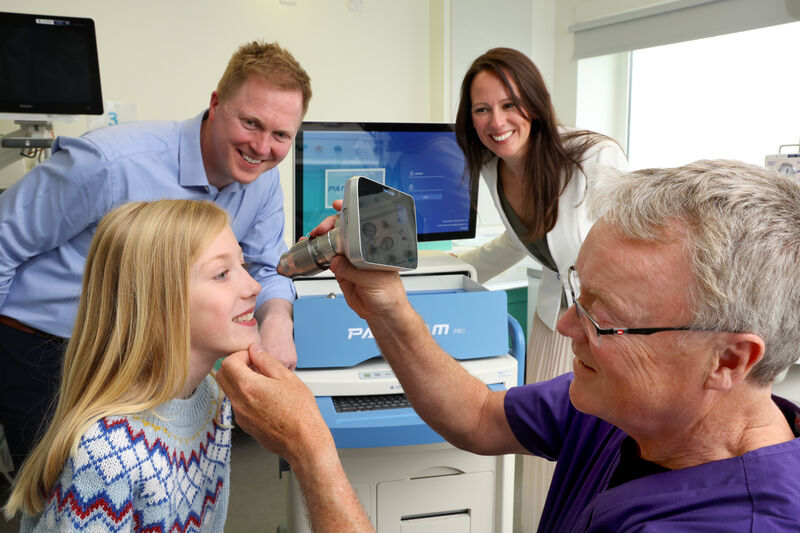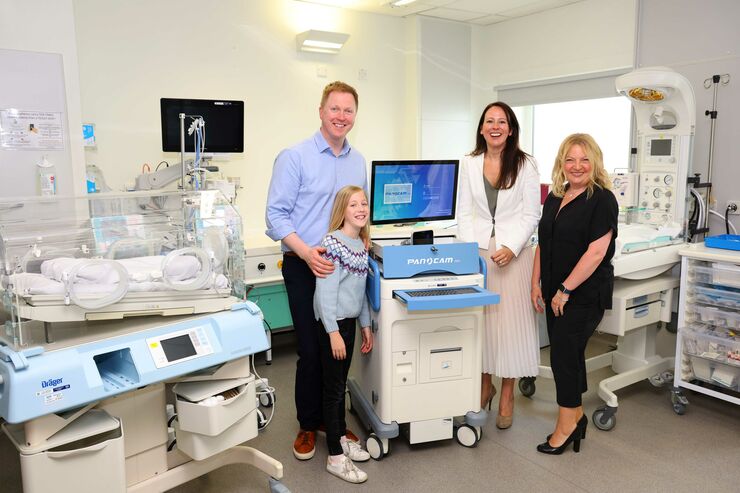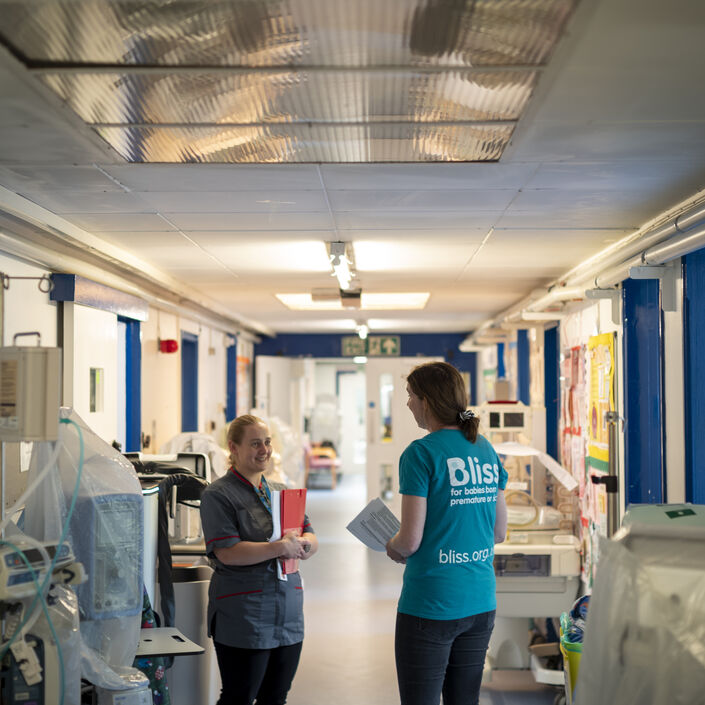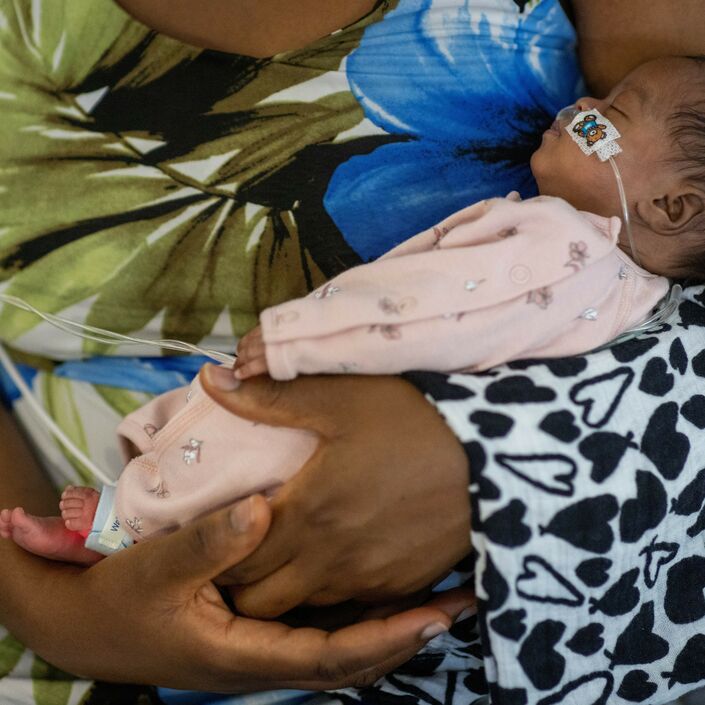The equipment was bought thanks to a £73,000 fundraiser by Specsavers Scotland staff. Partners from across the business raised the money after being moved by the story of colleague Michael O’Kane whose daughter Sophie (now nine) was born at 24 weeks weighing just 1lb 15oz.
Premature babies are at high risk of retinopathy which can cause blindness. They need their eyes checked regularly due to rapid changes in organ development (in what would have been the last three months of pregnancy) which can put them under a lot of stress – the equipment called a PanoCam provides a much quicker and safer way to examine them.
Specsavers donated the funds for the equipment to the Simpsons Special Care Babies charity, alongside raising money for Bliss through a Charity of the Year partnership.
Bliss’ ambassador Lady Sarra Hoy (whose son Callum was born at 29 weeks back in 2014) and Morven Finlayson, Bliss Scotland Trustee, came along to the Royal Infirmary where they were shown the equipment by Professor Ben Stenson, clinical director and SSCB representative.
Lady Hoy said: “As a parent on the neonatal unit, it’s so frightening to see your baby undergo lots of invasive procedures which can be stressful for them when they’re so tiny. This equipment – together with the support that Bliss is providing to families thanks to Specsavers’ incredible fundraising – will make such a difference to babies and their families.”
Michael O’Kane, a Specsavers optician and store director in Morningside and Cameron Toll, said: “There were times when I feared Sophie wouldn’t pull through, but she recovered thanks to incredible support from the neonatal unit, and I will forever be grateful.
“This fundraiser is testament to what can be achieved when you club together to make a difference, and myself and all my colleagues across Scotland feel immensely proud to have helped bring this equipment to the hospital.”
Staff at the unit are currently being trained in using the PanoCam which, as well as being used to examine premature babies, can also be used to detect ocular tumours in older children.



